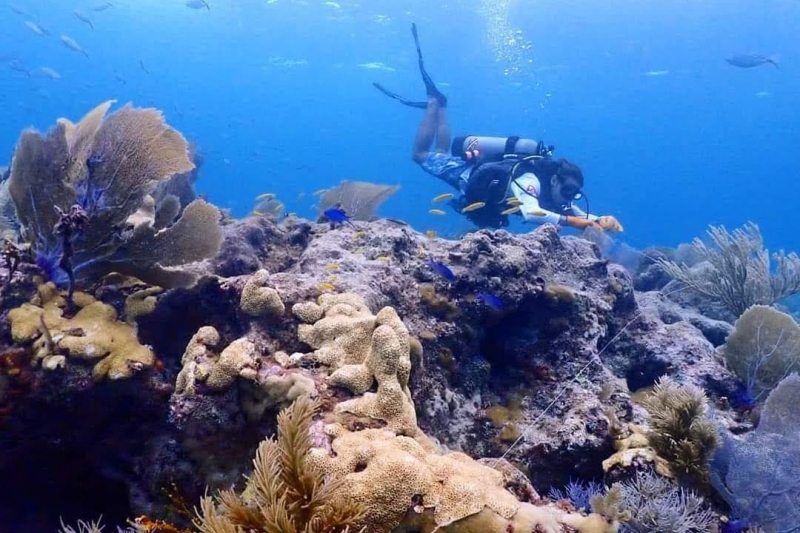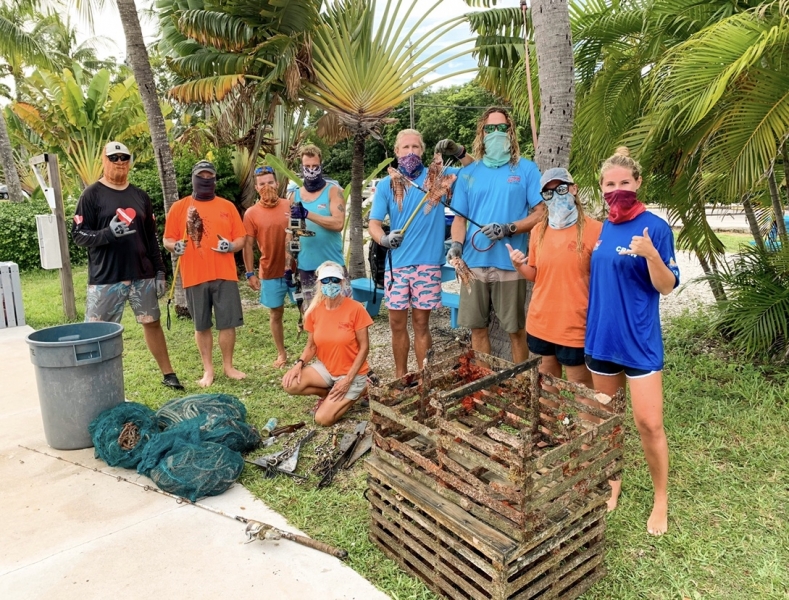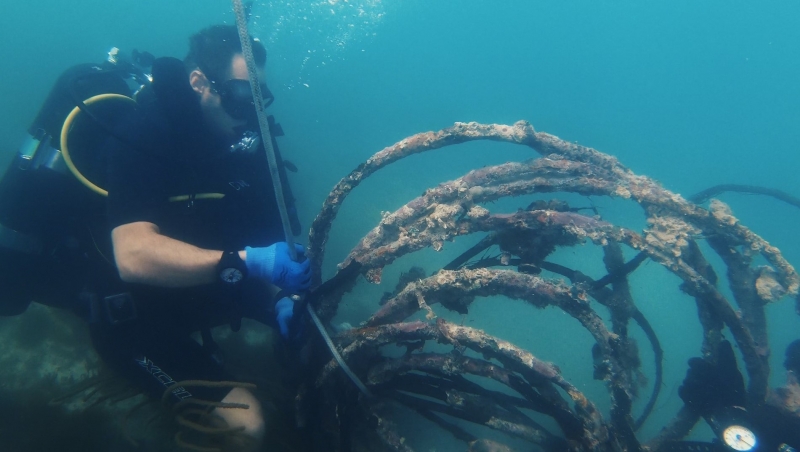Guest blog by: Melanie Herrera, Communications Manager, and Laura Stone, Conservation Manager, of the National Marine Sanctuary Foundation
Marine debris is a significant challenge facing our blue planet and an ongoing challenge in Florida Keys National Marine Sanctuary, home to the nation’s only continental barrier reef. Debris, including lost or abandoned fishing gear and trash, threatens marine life with harmful ingestion or entanglement, damages habitat quality, and risks the health of the wonders that our national marine sanctuaries are meant to protect.
Following Hurricane Irma in 2017, an onslaught of debris was left behind in the southeastern United States. The aftermath damaged ecosystems that are critical for the sanctuary’s marine life, including sponges, dolphins, manatees, and sea turtles. Consequently, Florida Keys National Marine Sanctuary and its Advisory Council identified marine debris as a major priority needing a proactive response: the Goal: Clean Seas Florida Keys initiative.

Goal: Clean Seas Florida Keys was established in May 2018 as a community stewardship partnership between the National Marine Sanctuary Foundation and its local chapter, Florida Keys National Marine Sanctuary, and the Blue Star Dive Operators program to remove marine debris and empower the community to act as stewards of the environment. Removing marine debris and fishing gear restores, protects and enhances marine ecosystems for the species that rely on them; supports a robust, sustainable tourism industry; and prevents future damage through entanglement, abrasion, and breakage of corals, kelp forests, and other critical ecosystems.
The Goal: Clean Seas Florida Keys program is unique in that it targets hard to reach, underwater, and/or difficult debris from sensitive habitats without causing undue harm. Recently, the National Marine Sanctuary Foundation and its local chapter received funding from the NOAA Marine Debris Program to expand its work and continue removing underwater marine debris in the sanctuary.

To date, Goal: Clean Seas Florida Keys has supported nearly 507 recreational divers and 260 professional divers who spent nearly 1,000 hours underwater responsibly removing over 20,500 pounds of marine debris and over 30,000 feet of fishing lines and rope. Recently, the Foundation also collaborated with highly trained divers from the U.S. Army Special Forces to remove heavy industrial debris from U.S. Government restricted waters. With support from the NOAA Marine Debris Program, the divers removed over 1,200 pounds of marine debris in a single day. After three years of hard work, Goal: Clean Seas is showing signs of success as dive shops have recently reported having to go to deeper reefs to locate marine debris.

Thanks to the support from the NOAA Marine Debris Program, the Foundation will amplify its ongoing work and welcome new dive shops in Florida to the program. In addition, as some reefs are seeing decreased amounts of debris due to the program’s success, scoping dives are planned to find new locations where marine debris is collecting. In 2021 and beyond, and with the help of a NOAA Marine Debris Program removal grant, the Foundation plans to continue current partnerships and start new ones, pursue new funding opportunities, and grow the success of Goal: Clean Seas Florida Keys to protect these treasured places in our ocean.

Where can a person sign up to volunteer for helping clean up the marine environment?